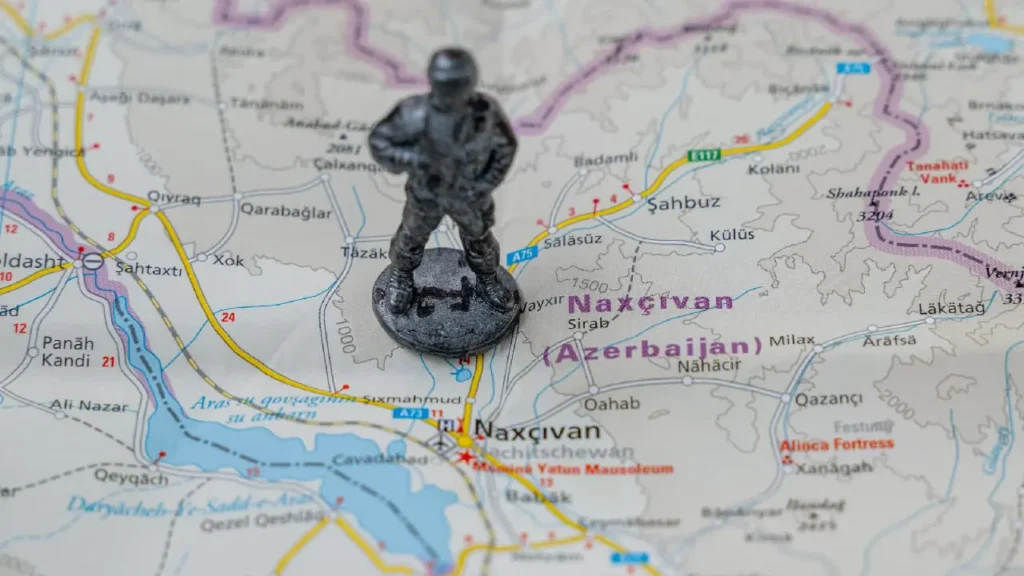In Türkiye’s foreign policy, the motivation for interventionism has clearly intensified as a core parameter. The examples of this can be seen in how Türkiye’s foreign policy instruments have been integrated with the security strategies pursued in the theaters of Libya, Azerbaijan, and Syria. As a natural consequence of this overarching trajectory, the relationship framework between Türkiye and Azerbaijan entered a new course with the Second Karabakh War. Türkiye intervened actively to help Azerbaijan liberate the territories occupied by Armenia, and this was enshrined within an institutional and legal framework by means of the Shusha Declaration.
By virtue of being a country situated in the South Caucasus, Azerbaijan exhibits a wide array of geopolitical interactions. Structurally, it seeks simultaneously to strike a balance with Russia on one hand and with Iran on the other. For a nation encircled by major powers, diplomatic flexibility, establishing strategic ties with states that can counterbalance its surrounding neighbors and bolstering economic resilience have become the fundamental pillars of its foreign policy strategy. Accordingly, in recent years Azerbaijan has accelerated its relations with Israel, the United States, and the European Union, pursuing a strategy aimed at creating reciprocal dependencies in these partnerships.
Relations between Türkiye and Azerbaijan have developed in recent years under the positive influence of high‑level diplomacy, driven by cultural ties, shared historical narratives, and common threat perceptions. For Türkiye, security, balance, and stability in the South Caucasus, which includes Azerbaijan, are of paramount importance. Russia’s excessive influence in this geographical area could pose a threat to Türkiye’s northern and eastern axis. The geopolitical positions that Georgia, Armenia, and Azerbaijan adopt are therefore crucial for Türkiye.
The Zangezur Corridor is a 43‑kilometer transportation link aimed at connecting Azerbaijan and Nakhchivan through Armenia. The corridor’s activation could contribute to the economic development of the countries, enhance regional integration, and more importantly, foster a geopolitical balance in the South Caucasus that serves as an alternative to Russia. A notable deficiency in the South Caucasus has been the lack of economic integration due to the Russian factor. Although Western powers’ interest in the region has increased since the 1990s, Russia’s continuing elite dominance in the area and the attendant aligned political clusters, has propelled these countries onto a destabilizing trajectory. Moreover, making the Zangezur Corridor operational would be a concrete step toward realizing the “Middle Corridor.” This could usher in an era of intensified trade relations between China, Central Asia, and Europe.
The latest developments point to two significant geopolitical realities: the weakening of Iran and Russia’s increased focus on its security affairs. These indicators may signal that, in the short term, the revisionist impulses of both actors have been exhausted. This constellation opens a window of opportunity for Türkiye to adopt a more proactive posture in the South Caucasus. Israel’s strikes against Iran since October 7 have severely worn down the country both militarily and economically. Thus, in the near term, it is difficult to see Iran playing an effective, transformative role in the regional equation. Faced with what it perceives as an existential threat, Iran’s primary objectives have become regime security and survival. This may push Tehran to broaden its diplomatic engagements and seek security guarantees from its neighbors. Meanwhile, Russia has its hands full with the war in Ukraine and the series of related issues involving various global actors. It is inevitable that Moscow will concentrate its diplomatic and military energy on this theater; failure or loss of control there could evolve into a systemic problem for Russia.
Türkiye’s new diplomatic approach, which emerged with the Arab Spring, signals a multidimensional foreign policy. This goes beyond changes in diplomatic engagements, intervention capacity, and foreign‑policy culture; it is also reflected in the new institutional framework. The collaboration among the Ministry of Foreign Affairs, the National Intelligence Organization, and the Turkish Armed Forces has proven effective, notably during the Second Karabakh War. One can say that the new strategic process with Azerbaijan has been shaped by the cooperation of these three institutions.
This new foreign‑policy concept makes it crucial to expand economic and diplomatic cooperation in the South Caucasus. In particular, the dialogue process initiated between Türkiye and Armenia can be cited as an example of this. Although the ongoing negotiations between Azerbaijan and Armenia sometimes falter due to each country’s internal political balances, they generally follow the broader trend. Developing diplomatic ties with Armenia could serve as a facilitative factor in materializing the Zangezur Corridor.
Alongside these developments and processes, it is important to underscore the rising economic, geopolitical, and security potential of the Organization of Turkic States. As a member of this body, Türkiye has emerged as a regulatory power in Central Asia and has increased interaction among the relevant countries. Thanks to this framework, tensions that Türkiye has experienced with some regional states for various reasons have been brought into alignment. With the Zangezur Corridor, one can expect a further acceleration of integration within the Turkic world.
It is evident that the relationship between Türkiye and Azerbaijan was institutionalized by the Shusha Declaration. The two countries have entered a path of strategic cooperation, and it can be said that mid‑term integration across many sectors is inevitable. In this respect, the activation of the Zangezur Corridor is a critical factor that will help establish territorial connectivity.


